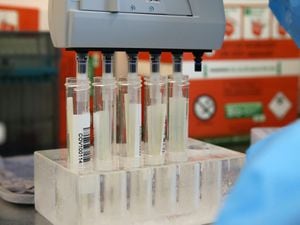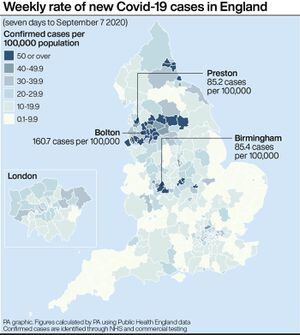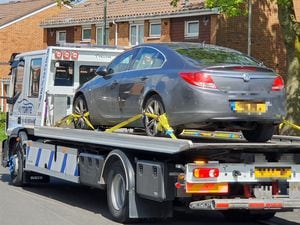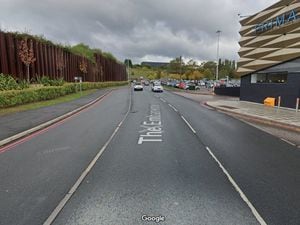Coronavirus: Households banned from mixing in Sandwell and Birmingham under local lockdown
New local lockdown restrictions will ban residents in parts of the West Midlands from socialising with people from outside their households, it has been announced.

All of the Sandwell, Birmingham and Solihull boroughs will be affected by the new rules which will come into force from Tuesday.
West Midlands Mayor Andy Street announced the Government's new measures at a media briefing this afternoon following a rise in coronavirus cases across the region.
The briefing was told schools and businesses will remain open in the affected areas but that residents will not be allowed to meet people from other households indoors or in private gardens.
If you live in Sandwell, Birmingham or Solihull, the rules mean:
You cannot meet people you do not live with in your home or garden, unless they are in your support bubble
You cannot meet people you do not live with in their home or garden, regardless of whether it is in Sandwell, Birmingham, Solihull
The household restrictions coming into force on Tuesday will not affect the hospitality sector.
It comes after a consistent rise in cases across the region, with Birmingham the area with the third highest rate of Covid-19 infection in England in the week to Tuesday.
The rate of coronavirus infection in Birmingham was 78.2 cases per 100,000, with 892 infections over the period - among the highest in Birmingham since April's peak.
Meanwhile the Covid-19 infection rate in Sandwell was 42.8 compared with 22 in the previous seven days.

Mr Street said he had been permitted to read out a statement headed "Ban on household mixing in Birmingham, Sandwell and Solihull", with the agreement of the Health Secretary, Matt Hancock - who had been due to make the announcement.
The mayor said: "The following areas will now be escalated to an area of national intervention, with a ban on people socialising with people outside their own household.
"The ban will take effect from Tuesday 15th September, but residents are advised to avoid household mixing before then as it has been identified as one of the drivers of transmission."
He added that the bans applied to the whole of Birmingham, Sandwell and Solihull.
Mr Street concluded the statement by saying: "This decision has been made in collaboration with local leaders who are considering additional local measures to tackle the increase in the number of cases."
He added: "So to emphasise, this is about mixing between households, it is not about prevention of schools, workplaces, transport, any of the other options - it is about household mixing."
Mr Street said the full Government announcement on measures, potentially affecting other areas of the country, would be made "later".
Young people affected
Sandwell Council's interim leader, Maria Crompton, made a heartfelt plea with residents of her borough to take the "killer" virus seriously.
She said: "Like other areas, we have got a much higher rate than other areas at the moment.
"In the last seven days, we have gone from 140 cases, compared to 70 cases last week which were mainly in Smethwick and West Bromwich areas.
"A large proportion in Sandwell are between the ages of 20 and 40 years and those people feel they don't have such a problem as everyone else so they can carry on partying and do everything that they want to do.
"But unfortunately they can pick up things and take them back home and that is the concern.
"We have got a higher rise of contamination from within households. It is not from outside the household.
"You must try to keep to your household and do not go into other people's homes or in fact their gardens."
She added: "We have a huge system here to protect families but the message to families is that Covid-19 will and does kill. It can be fatal and if you don't follow the rules then it will come and visit your family.
"You will know a family or a family member or someone else very close, very shortly [that could be affected]. I'm sorry if I'm blunt but we need to be blunt, people have got complacent and feel they can go and do whatever they need to do."
No meeting inside or outside
Birmingham's director of public health Dr Justin Varney said the uptick in cases was "linked primarily to private household gatherings" at the end of August and across the bank holiday weekend.
An increase in testing had also turned up more positive results, he added.
The Leader of Birmingham City Council, Councillor Ian Ward, reiterated that the rules applied inside and outside of Sandwell, Birmingham and Solihull.
"If you live in the city boundary, you cannot mix with another household outside the city boundary," he explained.
More Covid-19 coverage:
"If you live in the affected area, in order to help prevent the spread of Covid-19, you must not host people you do not live with in your home or garden, unless they're in your support bubble.
"You must not meet people who do not live with, in their home or garden, whether inside or outside of the affected area, unless in your support bubble."
Addressing the city's residents after the household mixing ban was announced, Councillor Ward added: "I know this is difficult, particularly when we've got used to seeing friends and family, but it is vital we stick to these rules and protect each other, given the sudden rise in infection rates."
He added: "The virus has not gone away, it has not weakened, in fact it is relentless.
"We must be relentless in our efforts to control the spread.
"I understand that it may be frustrating that you can go down the pub but not see your family, but the data we have shows the infection rate has risen mainly due to social interactions, particularly in private household gatherings."
R rate increases
Meanwhile the reproduction number, or R value, of coronavirus transmission across the UK has risen above 1 for the first time since early March, according to the Government.
Data released on Friday by the Government Office for Science and the Scientific Advisory Group for Emergencies (Sage) shows the estimate for R across the UK is between 1.0 and 1.2.
The growth rate of coronavirus transmission, which reflects how quickly the number of infections is changing day by day, has also increased slightly.
For the whole of the UK, the latest growth rate is between minus 1 per cent and plus 3 per cent per day.
The R number in the Midlands is 0.9-1.1, while the growth rate in the region is between minus 1 per cent and plus 3 per cent.





